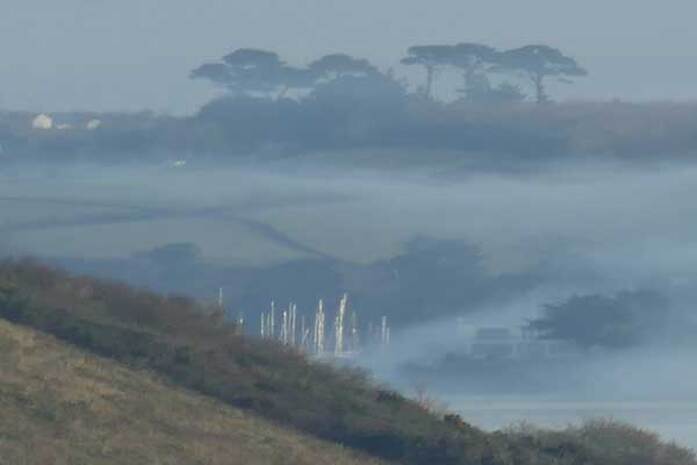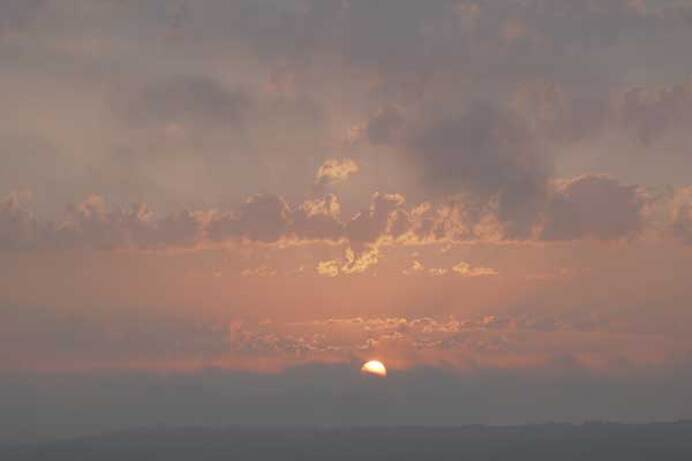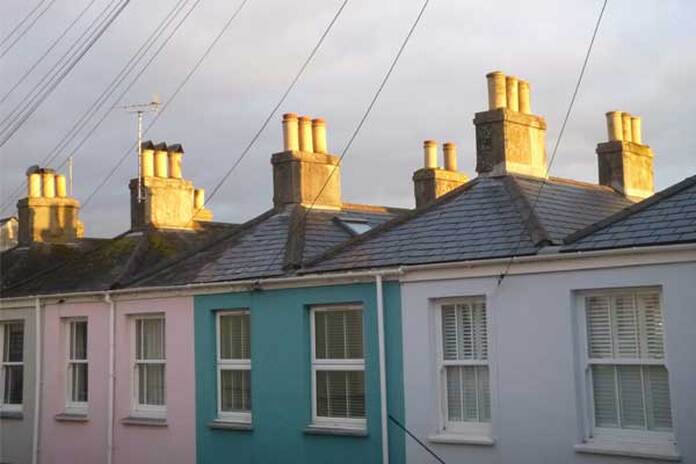We’re part of nature, so the proof that climate change is happening – if we still need proof – is that we’re adapting at an instinctive level. Birth rates are falling, et cetera. It’s in our nature to, for want of a better expression, get out of the way.
I got caught in a traffic jam on the way to the recycling centre.
In the back of the car, glass and plastic bottles, cans, cardboard, paper.
Around me, cars.
Underneath all of us, tarmac. A wide, flat road laid down on fertile earth, connecting us to the great network of tarmac surfaces laid down on so much of the fertile earth.
On either side of us, shops. Glass windows showing us – on that stretch of road – skiing and outdoor gear, furniture, bedroom suites, a showroom full of electric bicycles.
And underneath it all, more of the fertile earth.
There is, in Falmouth, a building called The View. It’s a block of student flats. It stands between an older row of terraced cottages and any sight of the sea. Its own view has been similarly obscured.
I thought of The View, and then I thought of the millions of acres of tarmac and buildings, car parks, offices, blocks of flats and housing developments, that we’ve laid down on the flood plains and the fertile earth.
Then I thought about the traffic jam around me. My idea of “too much traffic” is enough cars to slow me down on stretches of road where I should be able to burn up fuel and go fast. It’s not the existence of traffic, full stop.
The road network’s a recent thing. The first motorway in the world opened in 1929, in Italy, and then came a German autobahn at some unspecified (by Wikipedia) date in the 1930s. The M1 in England opened in 1959.
The Wikipedia page Evolution of motorway construction in European nations shows far more dramatic rises than anything about global temperature.
If you seek our monument, look around you. We’ve tanked the landscape with non-porous tarmac.
[For those of us without experience of damp cellars, “tanking refers to the application of a waterproof coating, effectively making the walls permanently watertight.” Cut down from the definition on permagard.co.uk’s advice page. Thanks.]
When I got home, I looked up “global birth rate” on Google. Pew Research Centre’s FactTank tells me: “For the first time in modern history, the world’s population is expected to virtually stop growing by the end of this century, due in large part to falling global fertility rates.”
But are we preventing ourselves quickly enough? Will climate change get there first? Maybe our instincts will give us more arguments, relationship break-ups, disagreements?
Ironic, I’d say, if the argumentative angels of our nature goaded us to salvation.



